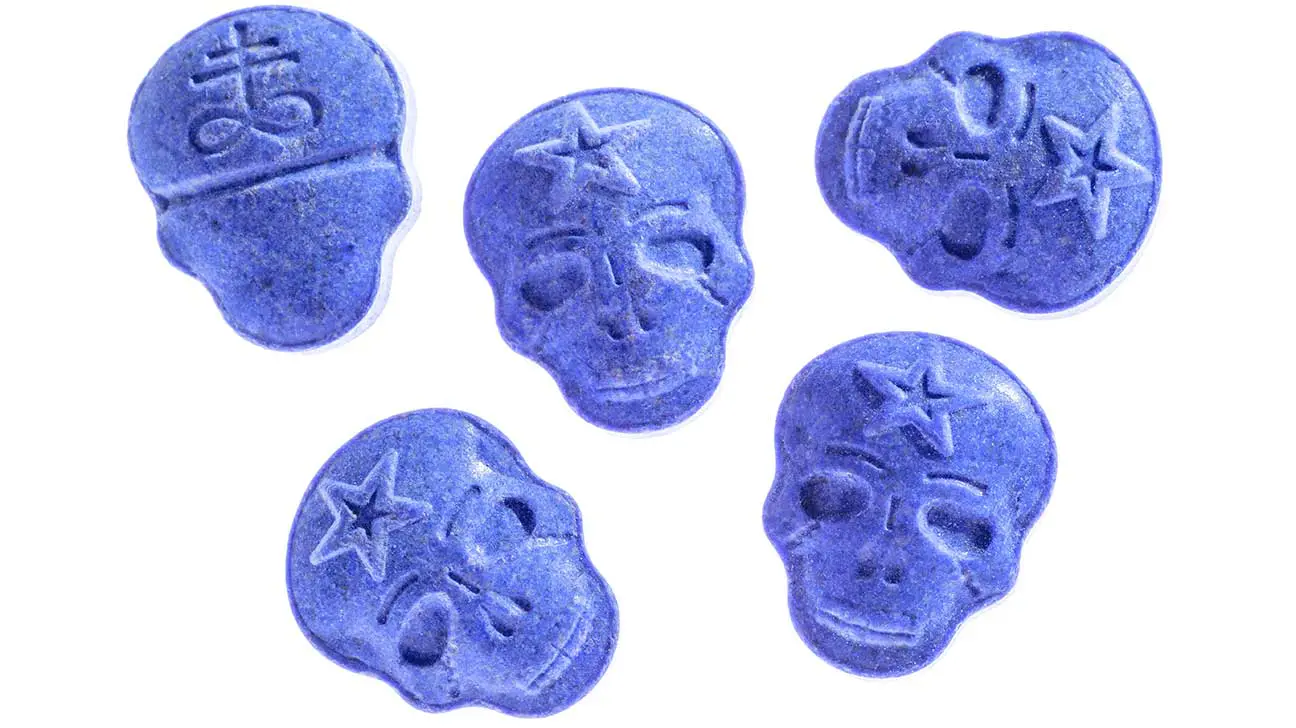
MDMA is an illicit drug that alters mood and perception by interacting with chemical receptors and three main neurochemicals in the brain. When people take MDMA, the drug affects their dopamine, norepinephrine, and serotonin levels.
This synthetic drug is popular in the club scene and is frequently abused for its euphoric effects. People who abuse this illegal substance often mix the drug with alcohol.
These two substances are mixed to increase the effects of drug use, enhancing the high people feel when under the influence.
Combining MDMA with alcohol can lead to serious adverse side effects. Long-term use of MDMA and alcohol may cause damage to the cardiovascular system and lead to cardiovascular disease.
The two substances come with a high risk of abuse, addiction, and dangerous side effects.
Side Effects Of Polysubstance MDMA And Alcohol Abuse
Individuals who use MDMA while drinking alcohol do so to experience the enhanced effects of both substances. Mixing the substances together may lead to extended periods of euphoria and disinhibition when compared to using each substance alone.
This means that people who abuse these substances together are often at increased risk for alcohol poisoning (alcohol toxicity), heatstroke, overdose, and physical injury.
Habitually abusing MDMA and alcohol may cause damage to the cardiovascular system and lead to heart disease later in life.
Side Effects Of MDMA Abuse
MDMA is a synthetic drug also known as 3, 4-methylenedioxymethamphetamine. The drug is illegally produced in powder, liquid, or tablet form.
MDMA is commonly abused in party and “rave” environments for its stimulant, euphoric, and hallucinogenic effects.
Short-term side effects of MDMA use include:
- jaw clenching
- sweating
- fainting
- blurry vision
- increased body temperature
- heat exhaustion
- heatstroke
- nystagmus (involuntary eye movements)
- increased heart rate
- hypertension
- paranoid thoughts
- hallucinations
- overdose
Many MDMA-related overdoses are caused by overheating (hyperthermia) and heatstroke. MDMA overdose may lead to seizures, high blood pressure, fainting, and panic attacks.
The National Institute on Drug Abuse reports that chronic use of MDMA may lead to physical dependence. However, more research is required to determine exactly how MDMA may lead to a substance use disorder.
The drug acts on many of the same neurotransmitters in the brain targeted by other addictive substances. Because MDMA acts on the same chemical receptors that release serotonin, repeated abuse of the drug may lead to mental health symptoms or a mental health disorder.
Long-term effects of MDMA abuse may include:
- anxiety
- mood swings
- aggression
- insomnia
- confusion
- depression
People who buy MDMA are at increased risk for consuming unknown illegal substances. MDMA may be falsely advertised when sold on the street.
The drug may be cut with dangerous substances such as methamphetamine, bath salts, and other drugs.
People may face unknown alcohol interactions and adverse drug interactions when consuming alcohol with street drugs.
Side Effects Of Alcohol Abuse
Alcohol is a depressant drug that is commonly used as a recreational substance for many individuals. While many use alcohol for its effects of relaxation and sedation, alcohol causes negative side effects, especially when abused.
These side effects of alcohol abuse include:
- disinhibition
- insomnia
- dehydration
- cognitive impairment
- loss of coordination
- increased heart rate
- heart palpitations
Long-term effects of alcohol abuse include addiction. Alcohol abuse may cause damage to the heart, liver, and brain. Alcohol abuse may also lead to reduced cognitive functions and memory loss.
Treatment For Polysubstance Abuse
When a person struggles with both an alcohol use disorder and MDMA abuse, the risk of developing dangerous side effects is likely. An untreated dual diagnosis may quickly lead to adverse reactions and overdose.
Further, people who have a dual diagnosis may quickly develop a tolerance, leading them to increase dosage and consumption. This can also cause adverse side effects or withdrawal symptoms when stopping use.
A dual diagnosis may require specialized medical care that addresses the underlying factors of both substance use disorders.
These may be treated with supportive medical advice and health care services to ensure the person safely withdraws and achieves recovery from both substances of abuse.
For these reasons, it is important that an individual addicted to alcohol and MDMA has access to supportive healthcare to ensure safe detox and withdrawal from these substances. Several addiction treatment options are available for dual diagnosis.
If you or a loved one is battling alcohol or MDMA substance abuse, please connect with our treatment center through our helpline today for information on treatment programs.
Addiction Resource aims to provide only the most current, accurate information in regards to addiction and addiction treatment, which means we only reference the most credible sources available.
These include peer-reviewed journals, government entities and academic institutions, and leaders in addiction healthcare and advocacy. Learn more about how we safeguard our content by viewing our editorial policy.
- National Library of Medicine, National Institutes on Health (NIH) — How Postmortem Redistribution of MDMA in Acute Alcohol-MDMA Combined-Use Rats Change under Effects of Alcohol
https://www.ncbi.nlm.nih.gov/pmc/articles/PMC5481449/ - National Library of Medicine, National Institutes on Health (NIH) — Neurotoxicity and persistent cognitive deficits induced by combined MDMA and alcohol exposure in adolescent rats
https://pubmed.ncbi.nlm.nih.gov/21040238/ - National Library of Medicine, National Institutes on Health (NIH) — Is MDMA Addictive?
https://www.drugabuse.gov/publications/research-reports/mdma-ecstasy-abuse/mdma-addictive - National Library of Medicine, National Institutes on Health (NIH) — MDMA (Ecstasy/Molly) DrugFacts
https://www.drugabuse.gov/publications/drugfacts/mdma-ecstasymolly


